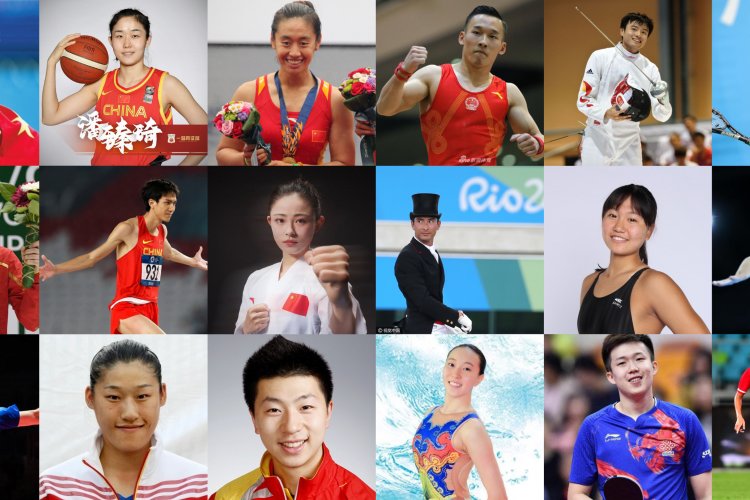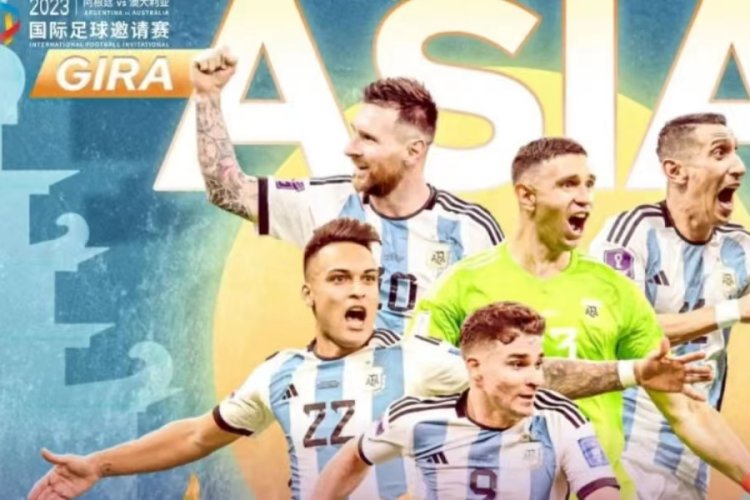Winning a first World Cup by 2050??? With all due respect, Chinese don't have physique to compete on highest level in football. Japan and Korea had few sparks of success but that's nowhere near top level.
I come from a country that stormed the world cup last year and we are strong people with great physical predispositions for sports. Of course, physique is not everything but it means a lot. Messi is tiny but he is an exception. Plus, as stated in the article there is no proper infrastrcuture for football and let's face it, there is no football tradition in China. Great players are made from an early age.
Foreign-Born Players Bring Controversy to China Soccer Successes
Chinese newspapers have been celebrating the national soccer team’s 7-0 thumping of Guam in a World Cup qualifying game last week. However, Team Dragon’s recent successes have been dogged by controversy over the naturalization of foreign-born players.
The impressive scoreline against Guam needs to be considered in context: Guam is a remote Pacific island with a population of 167,000, ranked 214 in the world (although they did once beat India, population 1.3 billion). Still, as the football cliché has it, you can only beat the team that you’re playing, and China’s victory puts them top of their qualifying group for the 2022 tournament.
The country’s ambition is clear from the recent (re)appointment of head coach Marcello Lippi, who won the World Cup with Italy as well as a host of European and Italian club titles with Juventus. Actually bringing home the trophy might be a distant prospect for China, but qualification for the first tournament wholly in Asia is surely a minimum requirement, particularly with China hosting the Asian Cup the following year. Although Asian teams have only five places at the World Cup compared to Europe’s 13, the lower standard of the teams means it’s viewed as one of the easier conferences to qualify from.
However, China’s team against Guam featured London-born Nico Yennaris (pictured above playing for Beijing Guo'an), now known as Li Ke, who in May this year became the first naturalized player to represent China at soccer. He is soon to be joined by Jiang Guangtai, formerly Tyias Browning. As Yennaris and Browning, they both played for England at youth level, but both have Chinese heritage, unlike Brazilian-born striker Elkeson (Ai Kesen), who scored the seventh goal of the game.
The rules of qualification for national teams are set globally by FIFA, and nobody is suggesting that they have been broken. Chinese fans might reasonably point to the England cricket team, whose recent World Cup victory was inspired by Ben Stokes (born in New Zealand) and Jofra Archer (born in Barbados). However, it could be argued that a multi-ethnic team better represents modern, diverse England, whereas China is still 90 percent Han.
More importantly though, the need for foreign-born players to boost the team shines a light on the continuing lack of truly world-class players developing in China. Despite the huge investment in the sport, China’s world ranking is actually declining from a high of 37th in 1998 (they’re currently ranked 68).
I have suggested before what I believe to be the reason for this. Across Europe, South America, and Africa, you will see kids playing fierce, self-organized games of football on any patch of spare ground they can find. In China on the other hand, the sport is only played under supervision on designated pitches, usually once or twice a week at most. Besides a lack of open space, there is a desperate shortage of time for unstructured play, due to the importance placed on study. The Chinese government recognizes the problem this is creating for children’s health and development, with obesity and myopia particular concerns. But attempts to limit the amount of homework given to students have met with resistance from both parents and educators.
If China is to achieve its ambitious goal of winning a first World Cup by 2050, then it needs more than just pitches and coaches: it needs to accept that play is learning too for kids, and unstructured time is vital for children’s development.
READ: Where to Watch the Rugby World Cup 2019 in Beijing
This article originally appeared on our sister site beijingkids.
Photo: China Daily





